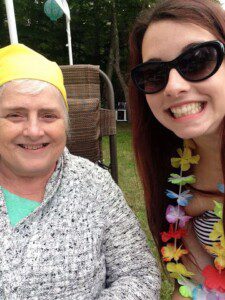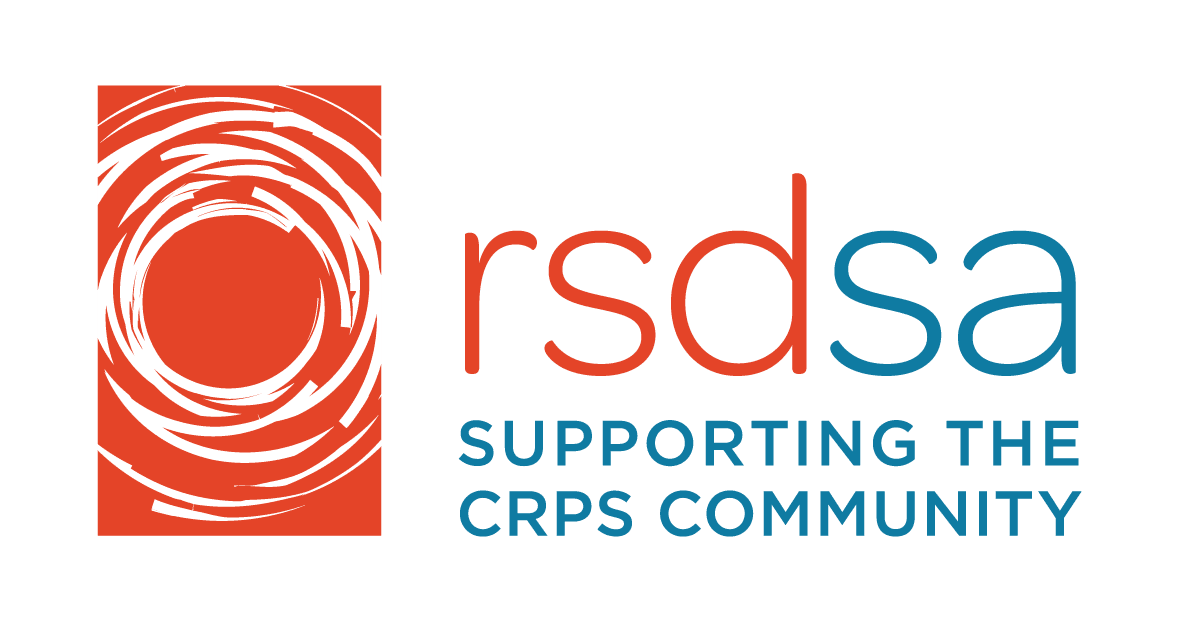 By Samantha Barrett for the RSDSA blog.
By Samantha Barrett for the RSDSA blog.
There are some things that we all do subconsciously. We judge books (and people) by their covers, we tell little white lies to spare people’s feelings, and we compare our pain to the pain of people around us. None of these actions are particularly good for us, especially when it comes to comparing pain. But why is something that comes so naturally to so many of us harmful? It is a touchy subject, so let’s dive right in.
I was diagnosed ten years ago with CRPS/RSD. At the time, I was incredibly young and getting bullied for having a condition that no one could see. I needed to educate myself so I could educate others. When I looked at the McGill Pain Scale and saw that CRPS/RSD was ranked higher than the pain associated with cancer, amputation, and childbirth, I was shocked. Everyone always talked about how painful giving birth was, how could my foot be worse than that? I let that slide to the back of my mind, although I printed out the pain index so I could show my friends, family, and teachers what I was going through. I never said anything out loud about my pain being worse than anyone else’s. In my own head, I would silently judge people that had sprains or breaks in their limbs for not being able to continue on with day to day life. If I could keep going on, why couldn’t they? Yes, they’ll miss football for 6 weeks, but then they’ll go back. I didn’t get a shot to regain normalcy.
As I got older, I realized that people wouldn’t tell me about their pain. I’d have friends and family get injured and I’d ask how they were doing, only to receive a response along the lines of: “I’m hurting, but not as much as you so I can suck it up.” I used to get extremely upset because people wouldn’t talk it. They’d hide it from me because they all knew about my CRPS. They’d hide post-surgery pain, other chronic pain, and various medical conditions from me. Did I think their pain was necessarily as bad as mine? No, but that didn’t mean I didn’t want to hear about it and try to do what I could to help them. (Yes, I now see how that sounds compared to the tone of the previous paragraph. Life is a learning process).
In college, I’d constantly do projects on CRPS, especially as an intern for RSDSA for 2 years. I’d bring back the MPI, articles, and other documents that showed CRPS compared to other conditions. I’d write letters, press releases, papers, and even social media posts that included this information. CRPS is such a misunderstood condition, I figured I had to use the examples to show people how painful it really was and why awareness and fundraising were so important. I’d have professors critique my work, asking if I really wanted to explicitly include the phrase: “The pain associated with CRPS is worse than that of cancer and childbirth.” When I said it was one of the ways to drive the point home, one of my professors reminded me it could isolate some people and offend them. He made a great point.
All of this changed for me in November of 2014. My mom came up to my school to “bring me supplies.” In reality, she was coming up to give me some earth-shattering news. They found a tumor in my nana’s brain and thought it could be cancerous. I was beside myself. She hadn’t been experiencing any pain that I was aware of. I went home for a week or two while my nana had surgery and recovered. It was confirmed brain cancer. My world stopped, as my nana is one of the biggest influences in my life. All these different thoughts raced through my head: did she not tell me or my family about the random pains she was experiencing because she knew I lived with CRPS? Then I started to think back on other instances where people didn’t tell me about their pain. My best friend had a baby and never mentioned her labor experience despite me seeing her during most of it. My uncle had constant, chronic back pain that he even had surgery on and he was more focused on finding ways to help my pain. Were people not telling me things because they thought I would judge them?
Now, in 2016, my family has had quite the year. My nana is still battling brain cancer and various other family members have severe, painful medical issues that they are going through. My nana now has nerve pain that was caused by her various treatments. So much of it seems like CRPS, it truly scares me. Now, everyone is a little more open. I have tried to reinforce in everyone’s mind that pain is pain. We all openly talk about our symptoms of the day when asked and know what different responses mean when asked “How are you doing today?” While we all have this understanding now, it doesn’t necessarily stop us from getting frustrated with each other. When you live in constant pain, it is so easy to forget how to see what other people are going through. I am guilty of this myself. My fiancé has a terrible skin condition that they can’t seem to diagnosis. It causes terrible cysts/abscesses all over his skin, usually requiring lancing. I get frustrated when he has to cancel because his skin hurts too much. But that’s when I have to take a step back and remind myself that he is in pain, too. It is an ugly side of myself that I hate to even admit. But to all of my family, if you’re reading this right now, please know how much I love each and every one of you and wish I could take it all away.
Just because your pain may be different than my pain doesn’t mean it doesn’t hurt. We cannot feel another person’s pain, but we can help them get through and be empathetic. A little compassion can go a long way. That is something that having CRPS has certainly taught me. In the CRPS community, we tend to support and understand each other, generally being each other’s greatest resources. Occasionally, we all see the unfortunate incidents that have people comparing their pain because they’ve had CRPS longer or have CRPS in more places than someone else. But, we must remember a few things:
- Pain is relative. You don’t necessarily feel it the same way as someone else, even if they have the same condition.
- Pain can put you on edge. You’re more likely to say something out of frustration when you’re hurting. This can cause you to forget that the person/people you are interacting with have feelings too. Take a step back before you type a response to someone or say something.
- Compassion and understanding matter. Having one person reach out to check on you or that tries to help you makes a huge difference, right? Try being that person for someone that may be going through a difficult pain time.
- Living with any kind of pain is difficult on the person and their loved ones.
I still find great value in the McGill Pain Scale, particularly when dealing with new doctors, hospitals, and people that have never heard of CRPS. It certainly gets the point out there. But I actively try to make sure I don’t use it to discredit the pain of others to show the world how much I hurt. Even a simple rewording can make a difference. It can change the tone from being “My pain is worse than all of these” to “The pain associated with CRPS is ranked higher than people’s experience with these other, well-known painful conditions and occurrences.”
